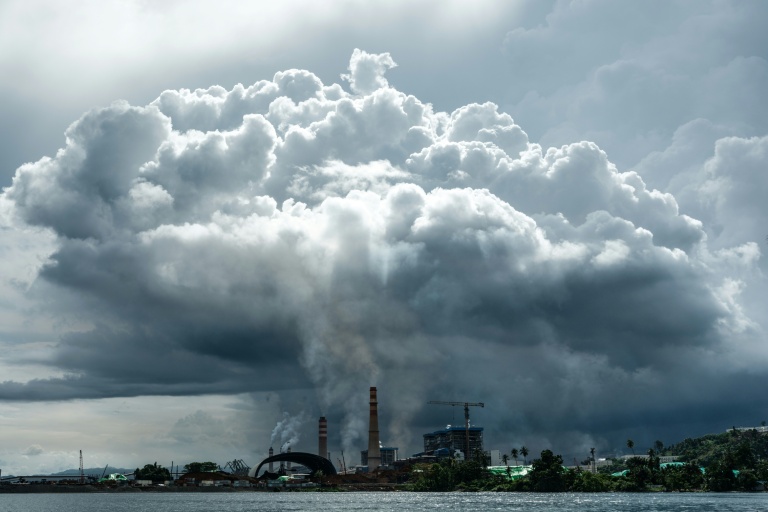Indonesia has taken a bold regulatory step by seizing part of one of its biggest nickel mining operations after finding that sections of the site were encroaching on protected forest land without the necessary permits. The action underscores growing tensions between the country’s ambitions as a global nickel powerhouse and mounting pressure over environmental protection and indigenous rights.
What Happened
- Authorities seized approximately 148–150 hectares of land in the Weda Bay Nickel concession on Halmahera Island for being used without proper forest-use permits.
- The area taken over had been operating as a quarry, supplying rocks for construction and maintenance, rather than the part of the concession used for the main nickel extraction operations. The company claims that mining operations proper were not affected.
- The Indonesian Attorney General’s office officially sealed the seized area, which now is under government control and will be returned to the state.
Who’s Involved
- Weda Bay Nickel (WBN): The concession is a joint venture involving Indonesia’s state company Antam, Singapore’s Strand Minerals, French firm Eramet, and Chinese steel giant Tsingshan.
- Indigenous communities and environmental groups: Notably, the Hongana Manyawa tribe and other local communities have raised concerns about forest loss, environmental degradation, and destruction of traditional lands and food sources.
- Government agencies: Indonesia’s forestry regulators, attorney general’s office, and mining/energy ministries are enforcing laws related to forest permits. The seizure is part of a broader crackdown on violations in the mining, palm oil, and forestry sectors.
Why This Matters
- Legality & Permitting
The core issue is that forestry law in Indonesia requires extra permits (forestry use permits) when mining or related extractive activities encroach on forest land. Even if a company has a mining license, failure to obtain the forest‑use authorization means parts of the concession may be considered illegal.
- Environmental Cost & Indigenous Rights
The lost forest cover affects biodiversity, carbon storage, watershed regimes, and habitat for local tribes. For communities like the Hongana Manyawa, even remote parts of forest being degraded undermine traditional livelihoods and cultural values.
- Nickel’s Role in Global Supply Chains
Nickel is a key input for stainless steel, and increasingly for electric vehicle batteries. Indonesia is one of the world’s largest producers of nickel ore and has pushed hard to capture more of the value chain (smelting, refining) domestically. Any disruptions, legal or regulatory, can ripple out to global markets.
- Regulatory & Reputation Risk
For companies like WBN, which have claimed “responsible mining” practices, this seizure is a reputational blow. It signals that even large, high‑profile concession holders are not immune from enforcement. For investors, this raises risk around stability of permitting, land rights, and environmental compliance. - Government’s Broader Crackdown
This isn’t a one‑off. Indonesia is increasingly scrutinizing mining, palm oil, forestry, and other industries for non‑compliance with environmental, forest, and land‑use laws. There’s domestic and international pressure (from NGOs, rights groups, markets) to ensure supply chains don’t contribute to deforestation or rights violations.
What Remains Unclear or Challenging
- Scope of Impact: The company insists the quarry area was the only part affected, and that mining extraction is not interrupted. Still, local groups worry about ongoing forest loss and whether this seizure will stop or slow them.
- Remedy and Compensation for Local Communities: Some activists argue that merely returning seized land to the state isn’t enough — they call for the land to be managed by affected local and Indigenous communities.
- Enforcement Consistency: Indonesia has many mining concessions spread across remote and ecologically sensitive regions. Ensuring that regulations are uniformly enforced, and that companies follow through on environmental remediation and permit compliance, remains a major challenge.
Broader Implications & What To Watch
- Nickel Prices & Market Signals: Such regulatory actions can shake markets, particularly given Indonesia’s central role in the nickel supply chain. Analyst are watching for how output and mining quotas may shift.
- Policy Changes: Indonesia may tighten forest permitting rules or increase oversight, especially for large concessions near or overlapping forest areas or indigenous lands.
- Sustainability Expectations: As demand grows for “ethical” and “sustainably sourced” minerals—especially for batteries and green tech—companies will face greater pressure from buyers, financiers, and regulators to prove compliance with environmental and social standards.
- Community & Indigenous Rights Enforcement: Legal and institutional mechanisms by which Indigenous and local communities can assert land rights or demand participation in management are likely to receive more attention.
Conclusion
The seizure of part of the Weda Bay Nickel site is symbolic of a larger balancing act for Indonesia: juggling its role as a top supplier of critical minerals for global green transitions with protection of its forests, biodiversity, and local/Indigenous rights. While the immediate operational impact may be limited (companies say production continues), the precedents set and enforcement signals sent are likely to shape how mining, permitting, and environmental compliance are treated in Indonesia in the coming years.

